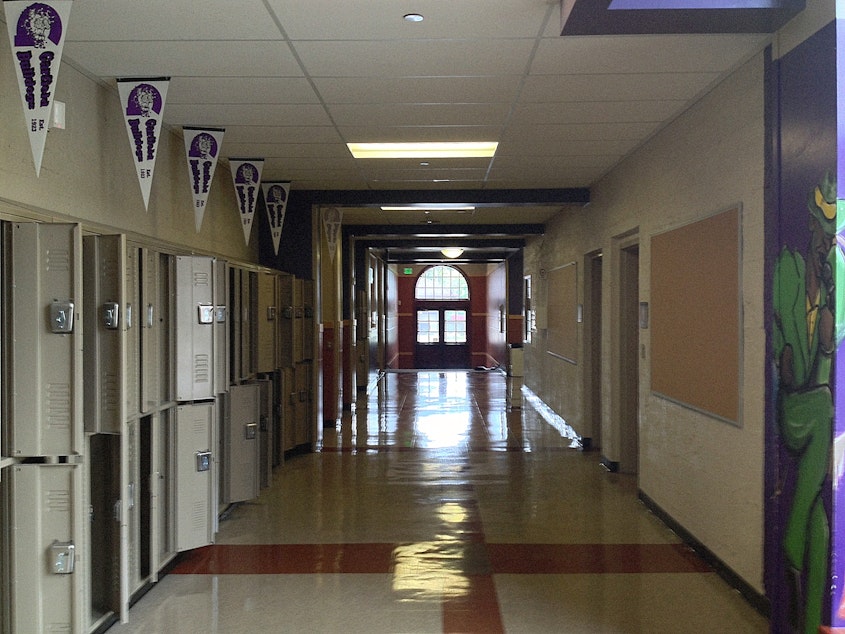'It's a civil rights issue.' Special education in the midst of a pandemic

As a Mercer Island High School senior, I worried that school closures would make it difficult for me to graduate on time. I wasn't worried about finishing my course work, though, because I knew it would continue online.
Unfortunately, many students with disabilities won't be able to transition to online courses so easily. Christine Kenyon, a special education teacher at my school, worries that her students’ education will be completely disrupted by the closure.
Students placed in Ms. Kenyon's classroom may have multiple disabilities. "Some might have Down Syndrome or autism," she said. "Some might be nonverbal learners. Fine motor and gross motor skills might be different than their peers."
Online education may not be accessible for many students with disabilities.
Ms. Kenyon's students have different needs and methods for learning than I do. Their typical day isn't a strictly structured seven-period schedule with assignments and exams.
When I visited Ms. Kenyon's classroom earlier this year, I saw students working on life skills, like counting change and operating technology. They also worked on these skills outside of the classroom.
Ms. Kenyon told me about class trips to McDonald's, riding the bus.
Sponsored
“[We] have social time and learn how to be in the community,” she says. “Interacting with cashiers, using our money.”
Another one of her classes went to the grocery store together to practice shopping skills.
School closures forced these activities to stop.
Ms. Kenyon says she cried when school was canceled.
“I knew that would be the last time I would be seeing my students for awhile," Ms. Kenyon says. “I knew how much they loved coming to school. I feel like we're suffering a considerable loss.”
Sponsored
In the initial weeks after the closure, Mercer Island School District administrators asked teachers to focus on making social and emotional connections with their students.
For Ms. Kenyon, that meant creating nine individualized learning plans to support her students and families at home.
But moving forward, Ms. Kenyon wonders how she can be an effective teacher for her students.
“Each kid will be different,” she says. “I’ve got some kids who are eager to learn and have some parents or caregivers who are ready for the challenge, and I have some kids whose families are not going to be okay with that.”
Governor Jay Inslee briefly acknowledged this issue during his press conference on April 6.
Sponsored
“We know closing schools also presents challenges in the need for equity in education,” he said. “Students with disabilities and other vulnerable students, we know this is a challenging time for their learning. We are addressing this by allowing limited school activity for those students in school buildings that really follow social distancing guidelines.”
How and when this will happen are still big questions, but Ms. Kenyon remains hopeful.
For now, there’s no good way to replace trips to the grocery store and face-to-face interactions common in the classroom. Ms. Kenyon says this inadequacy cannot be ignored.
“It’s a civil rights issue,” she says. “It’s important for all children in the United States to be given a free and appropriate public education."
“I know how hard people with disabilities have had to work to gain recognition in the workforce, schools, safety, being able to even get into buildings,” she says. “Once they’ve received that protection, there’s no way we should be taking that back at this time just because of a pandemic.”
Sponsored
In the meantime, Ms. Kenyon is going to support her students as best as she can — virtually.
This story was created in KUOW's RadioActive Advanced Producers Workshop for teenagers, with production support from Sonya Harris. Edited by Marcie Sillman. Find RadioActive on Facebook, Twitter and Instagram, and on the RadioActive podcast.
Support for KUOW's RadioActive comes from the Bill & Melinda Gates Foundation Discovery Center.



